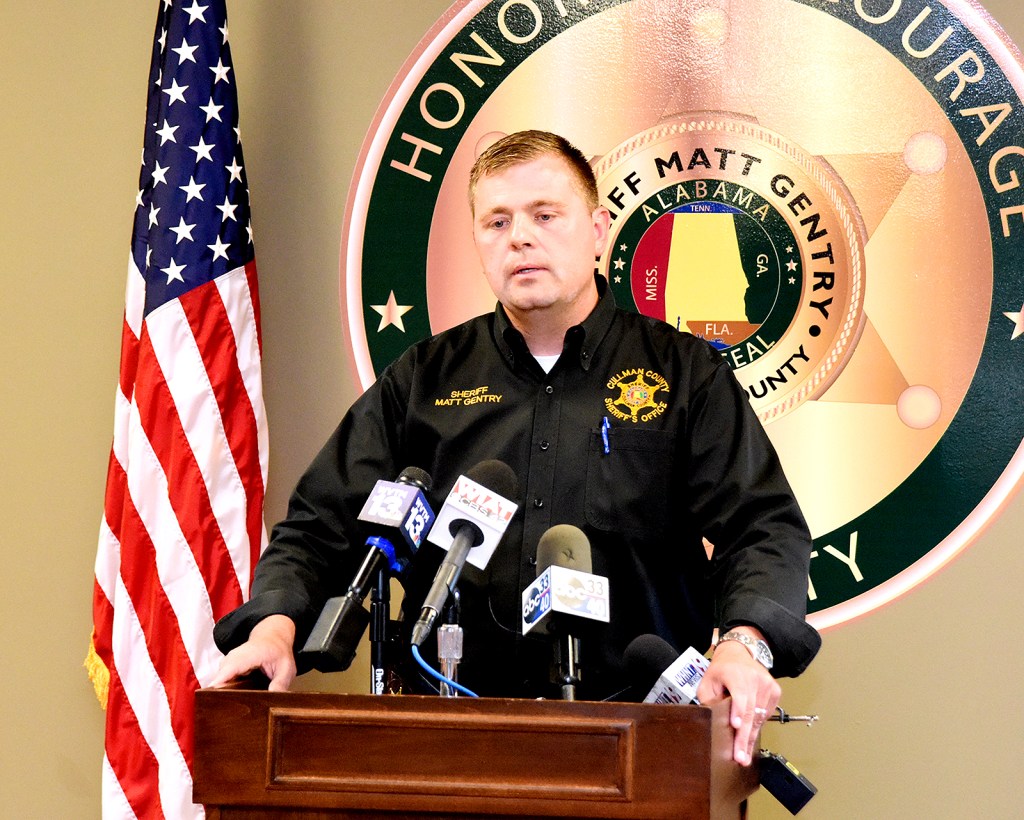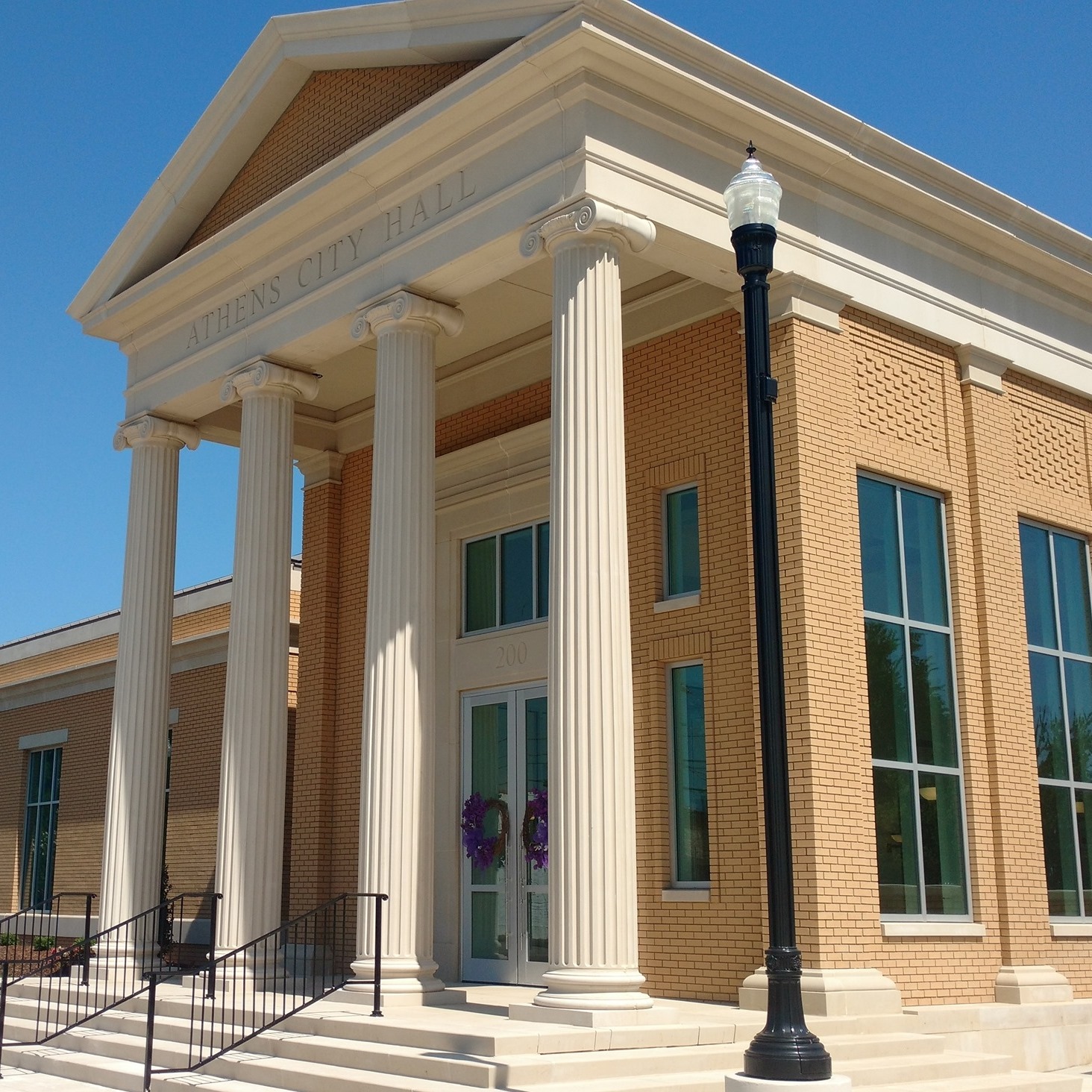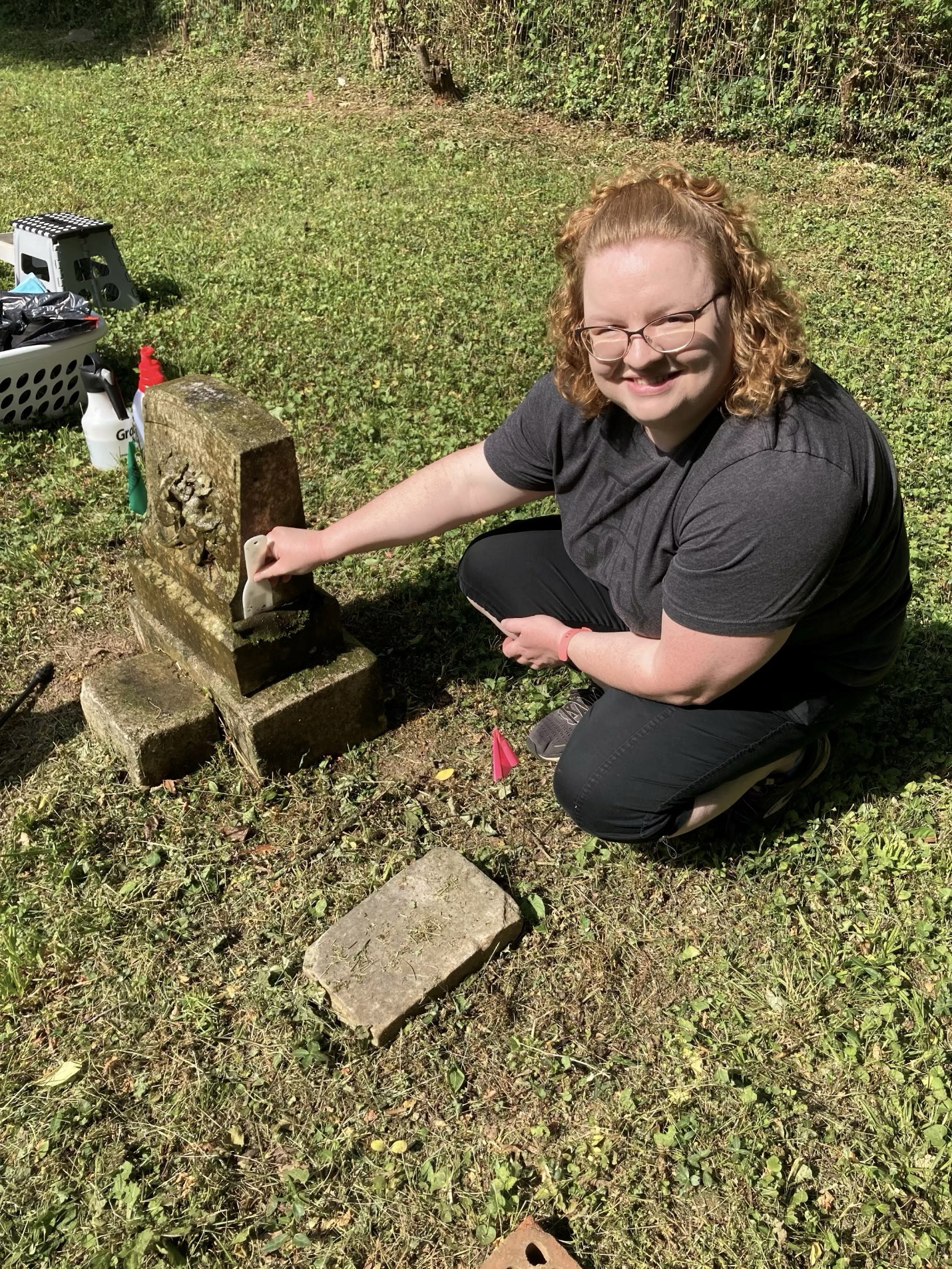Alabama committee continues to hear proposals for use of opioid settlement funds
Published 12:00 am Saturday, December 2, 2023

- Cullman County Sheriff Matt Gentry takes questions during a press conference at the Cullman County Sheriff’s Office in July 2017.
With the state of Alabama set to receive more than $250 million in settlements from opioid lawsuits, state lawmakers are hearing from groups and leaders around the state on how to allocate those funds.
The CDC reported nearly 107,000 drug overdose deaths in 2021, approximately 75 percent of those involving at least one opioid — powerful, often addictive, pain-reducing medications such as oxycodone, hydrocodone, and a synthetic, fentanyl.
Trending
In Alabama, more than 1,400 drug overdose deaths were reported in 2021.
Several pharmacies drug manufacturers and marketers have settled with states for their role in what officials have said is an ongoing opioid epidemic.
Cullman County Sheriff Matt Gentry spoke to the Oversight Commission on Alabama Opioid Settlement Funds Nov. 16 about how the opioid crisis has entered jails.
Deputies, on average, are responding to three suicidal or homicidal calls a day — typically the result of drug-induced or true mental illness, he said.
“Twenty-five years ago, we had somewhere to take them. We would take them to a facility. … We don’t have those facilities anymore,” he said.
Among the approximately 430 inmates in the Cullman County jail, nearly 20 percent of them are on psychiatric medications. The Cullman County Sheriff’s Office spends more than $1.1 million on internal medical doctors and nurses, Gentry said, noting the lack of access to outside treatment options.
Trending
One suicidal inmate had been been jailed for 233 weeks before receiving an evaluation with an order back to the judge. Another inmate has been in jail for 136 weeks and has been waiting for a mental evaluation for one year and eight months, Gentry explained.
“That one inmate has had 35 write ups, 35 incidents where he destroyed property inside of the building or hurt one of the deputies,” he said. “So we have young men and women they’re getting in law enforcement and they’re dealing with issues inside the jail and/or mental health.”
Gentry suggested that the commission allocate some of the opioid settlement funds for more staff at substance abuse and mental health treatment facilities.
“There’s got to be a quicker response to what we’re dealing with, with these orders for coming in for mental evaluations, whether it’s drug-induced or whether it’s through mental illness. and as you know, a lot of mentally ill people will use drugs to try to help with their mental illness, and we deal with that every day,” he said.
Committee members also heard from a representative from Emergent Biosolutions, the producer of Narcan, a naloxone-infused nasal spray that reverses opioid overdoses within minutes.
Amanda Becker, Emergent’s vice president of marketing, told the committee that access to naloxone is important in addressing the opioid epidemic.
“We believe that opioid overdose reversal medications such as Narcan nasal spray are one of the critical components of a larger comprehensive strategy that is needed to combat the ongoing opioid crisis and rise in accidental and fatal overdoses,” said Amanda Becker, Emergent’s vice president of marketing.
Emergent gained approval this year to sell the product over-the counter this year without a prescription. The product has also been dispersed to some first responders, schools, health departments and organizations around the country.
Becker notes that naloxone spray should not be a substitute for emergency care for an overdose.
“The initial dose is one spray inside the nose. If the person doesn’t respond, an additional dose of naloxone can be given in two to three minutes until emergency medical assistance arrives,” she explained. “When responding to an opioid overdose, every minute is important. Permanent damage begins in approximately four minutes without oxygen and death can occur soon after.”
Kim Boswell, commissioner of the Alabama Department Mental Health, told committee members in August that approximately 14,000 naloxone kits had been dispersed throughout the state.
The committee heard from several organizations that provide resources or treatment options for opioid addictions. Court officials also suggested the committee consider expanding drug courts throughout the state.
“These courts are very, very effective and it’s basically because a person is screened before they come into the court, they’re provided with a treatment plan,” Rich Hobson, administrative director of state courts, said. “They have to go see a judge at least two times a month, generally four times, and they have to tell what they’re up to and what they’ve been doing. They’re also frequently and randomly drug tested all the time — and this holds for accountability and makes them be truly accountable to the program.”
Among the 54 drug courts across the state, nearly 3,000 participants have graduated. More than 220 have graduated among 14 mental health courts in the state, and the state’s 27 veteran courts have graduated 332 participants, Hobson said.
Hobson said such courts, called accountability courts, help save the state dollars that would otherwise be used to house those people in jail or prisons.
“If you look at the cost of just one year of prison— because they didn’t go to prison because of the miracle of leveraged intervention, they wisely chose to go to drug court — but if they had gone for just one year, it would have cost the state of Alabama $89,161,820. It’s incredible, the savings, in addition to helping lives and helping families.”
The committee will continue to meet to hear input and suggestions on how to use the state’s opioid settlement dollars.
Alabama is expected to receive upwards of $270 million in settlement funds through a period of 10-15 years.
Earlier this year, state lawmakers allocated $1.5 million of the funds to Alabama Department of Corrections for inmate treatment programs, and $8.5 million to the Alabama Department of Public Health, which has launched a grant process for its allocation.





